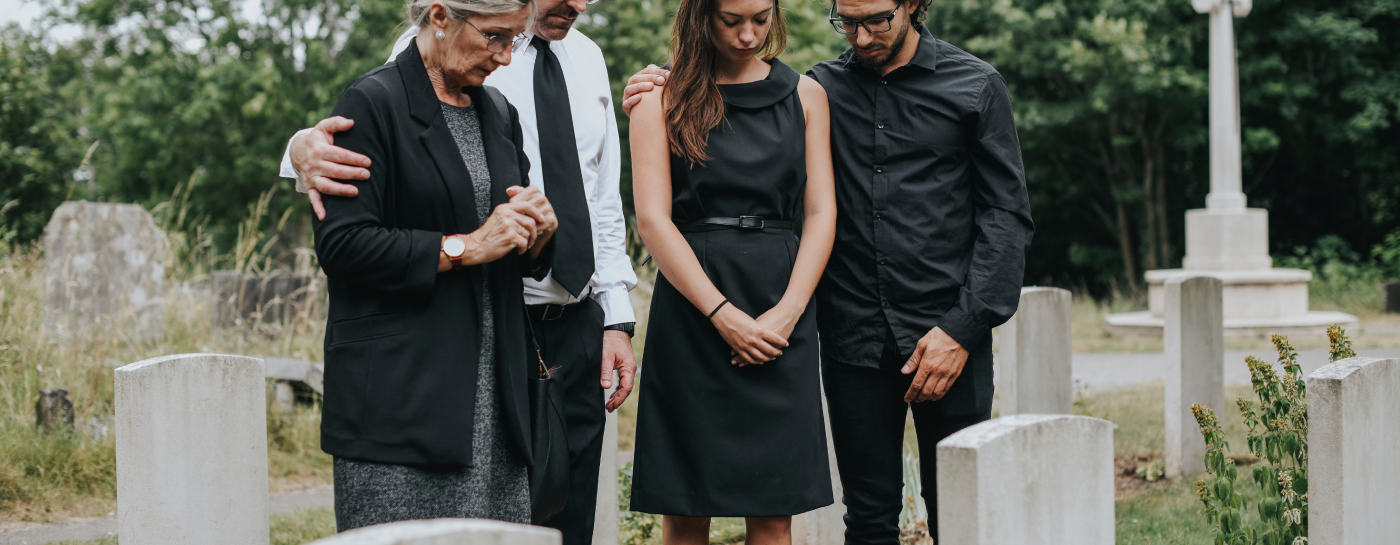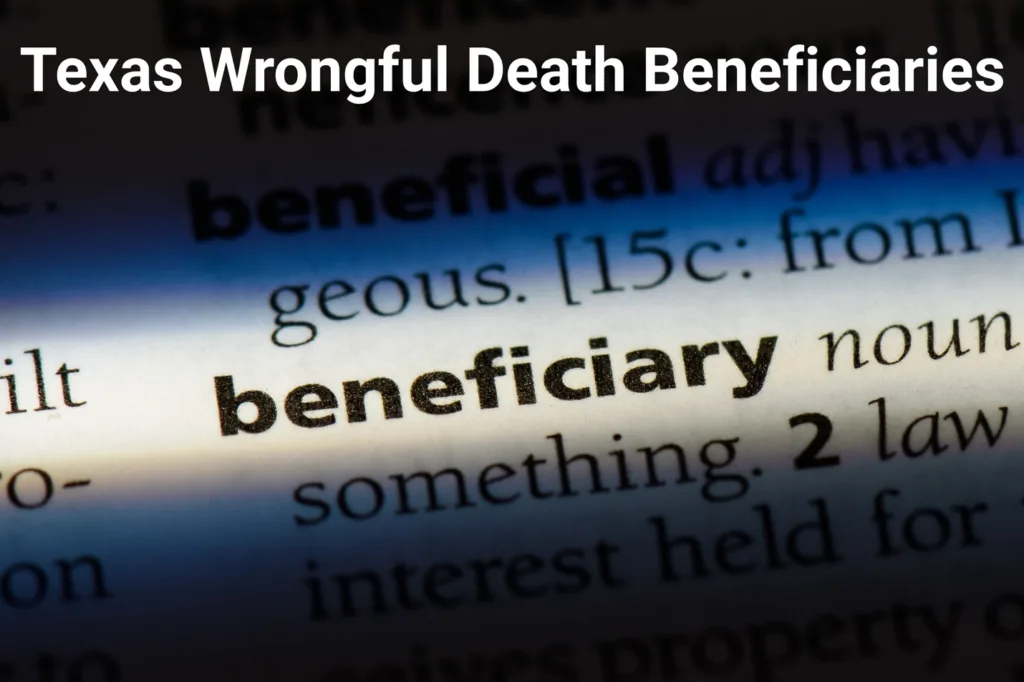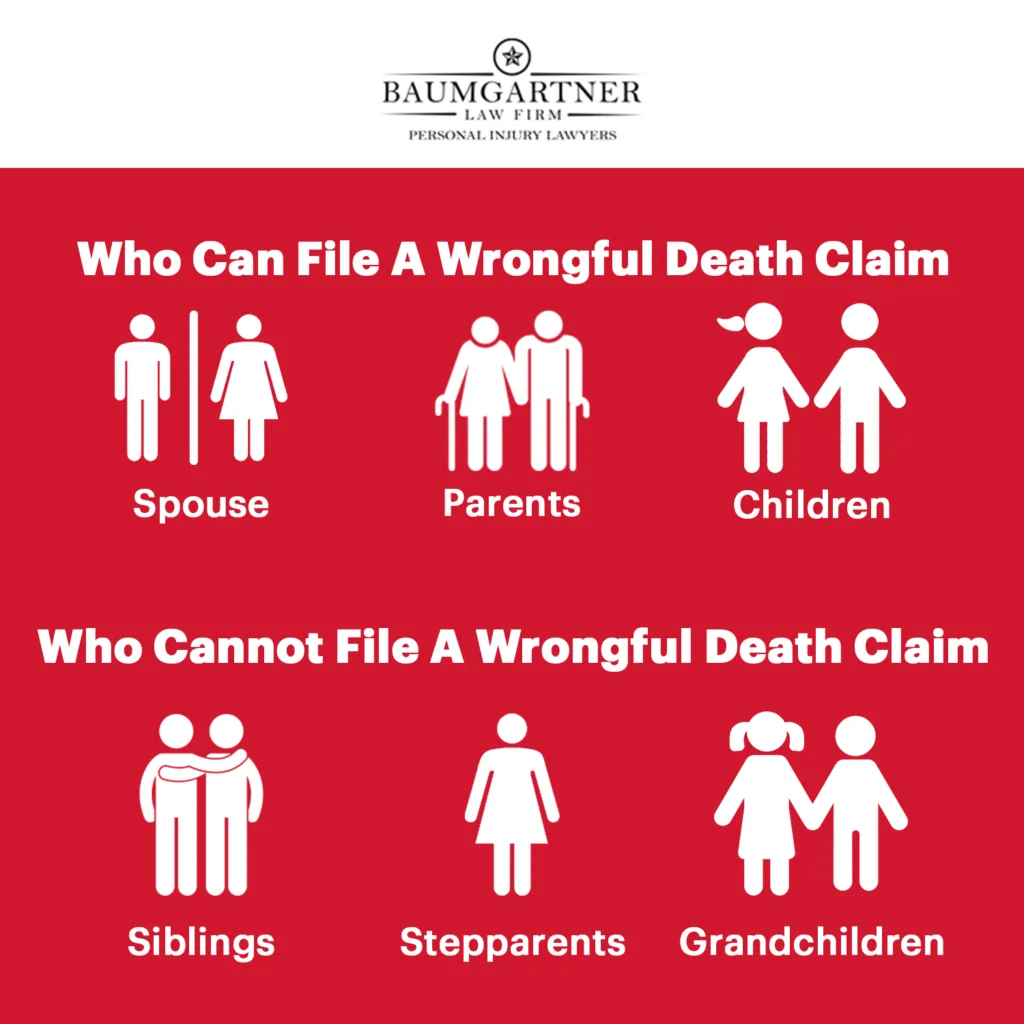
Understanding Texas Wrongful Death Beneficiaries
Losing a loved one is never easy, but it can be even more devastating when someone else’s gross negligence or wrongdoing causes their death. In these cases, the surviving family members may be able to file a wrongful death lawsuit to seek justice and compensation for their loss. Houston wrongful death lawyers can only file wrongful death claims for certain surviving family members.

However, many people are not aware of who can be considered a beneficiary in a Texas wrongful death case and what rights they have. Here are the different types of beneficiaries in a wrongful death claim and their rights under Texas law.
Who are Texas Wrongful Death Beneficiaries?

Spouses and Children and Parents
In Texas, by statute, the surviving spouse, children, and parents of the deceased are considered primary beneficiaries in a wrongful death claim. Wrongful death beneficiaries mean they have the right to file a wrongful death claim and seek compensation for their loss.
If the deceased was married at the time of their death, their surviving spouse under the wrongful death statute has the right to file a Texas wrongful death lawsuit on their own and on behalf of their minor children. If the deceased had adult children, the children have the right to file a Texas wrongful death claim for damages. Parents of the deceased also have a right to file wrongful death claims in Texas for the death of their children.
What Rights Do Beneficiaries Have in a Wrongful Death Claim?
The Right to File Wrongful Death Lawsuits
As mentioned earlier, the primary beneficiaries in a Texas wrongful death case have the right to file a lawsuit and seek compensation for their loss. Making a claim means that they can take legal action against the party responsible for the wrongful act and the death under the Texas wrongful death statute of their loved one.
Texas law allows beneficiaries in a wrongful death case to seek damages for their loss. Damages can include compensation for medical expenses, funeral and burial costs, lost wages, loss of companionship and support, loss of consortium, mental anguish, and more. Spouses and children of the deceased can pursue gross negligence claims for punitive damages if the wrongful act was malicious or extremely reckless. An example would be a fatal accident with a drunk driver.
In Texas, generally, there is no limit on the amount of damages that can be awarded in a wrongful death case (the exceptions to no limits on compensation for wrongful death damages are cases against medical providers and governmental entities). However, the amount awarded will depend on the specific circumstances of the case and the evidence presented.
The Right to Be Represented by an Attorney
Wrongful death cases can be complex and emotionally draining, which is why beneficiaries need to have legal representation. An experienced wrongful death attorney can help navigate the legal process and ensure that the rights of the beneficiaries are protected.
Noteworthy is that each wrongful death beneficiary can have a separate attorney. Often, the family picks one lawyer to represent everyone.
The Right to Settle or Reject a Settlement Offers of Wrongful Death Claims
In some cases, the party responsible for those who defend wrongful death claims (or their insurance company) may offer a settlement to the beneficiaries. This money is offered in exchange for dropping the lawsuit and releasing all claims.
Beneficiaries of the deceased person can accept or reject a settlement offer. It is important to consult with an attorney before making a decision, as they can advise on whether the offer is fair and if it is in the best interest of the beneficiaries.
The Right to Pursue a Lawsuit Even if Criminal Charges Have Been Filed
In some cases, the party responsible for the wrongful death may also face criminal charges. However, even if criminal charges have been filed, beneficiaries still have the right to pursue a wrongful death lawsuit.
Even if the criminal case is dropped or the defendant is found not guilty, a wrongful death lawsuit can still be filed. The outcome of a criminal case is not determinative of the right to pursue civil justice for wrongful acts. A criminal case may delay a civil wrongful death suit due to the defendant’s Fifth Amendment rights. Yet, Texas wrongful death claims can be pursued regardless of a criminal charge.
What if the Deceased Lived for a While After the Accident?
Texas Survival Claims
When someone is injured in an accident and does not die immediately, the decedent’s estate can file a survival damages claim in Texas. A survival case allows the estate of the victim to sue for the damages that the deceased sustained before death. In effect, survival cases allow the estate to sue for the personal injury damages in the deceased’s shoes.
The estate claims are distributed under the deceased will or by Texas estate distribution law.
What Happens if There is No Will?
If the deceased did not have a will, their assets would be distributed according to Texas intestate succession laws. This means the surviving spouse and children will inherit the deceased person’s assets, including any compensation awarded in a survival case. If there are no living spouses or children, the damages to the estate are distributed according to the statute.
What Happens if There is a Will?
If the deceased had a will, their assets would be distributed according to their wishes as stated in the will. This means the beneficiaries named in the will would inherit the assets, including any compensation awarded for a survival claim in a wrongful death case.
If the deceased did not name any beneficiaries in their will, the assets will be distributed according to the Texas intestate succession laws.
Texas Wrongful Death Damages
In Texas, wrongful death damages refer to the compensation that may be awarded in a wrongful death lawsuit. These lawsuits arise when a person dies due to the negligence or misconduct of another individual, company, or entity. The types of damages that can be pursued in Texas for wrongful death include:
- Economic Damages: These cover the financial contributions the deceased would have provided to their family members, including:
- – Lost earning capacity (the income the deceased would have earned had they lived).
- – Lost care, maintenance, services, support, advice, and counsel the deceased would have provided to family members.
- – Lost inheritance, including what the deceased would likely have saved and left to surviving family members if they had lived a normal expected lifetime.
- Non-Economic Damages: These are more subjective and include:
- – Mental anguish and emotional pain, suffering, and anguish resulting from the death of a loved one.
- – Loss of companionship, comfort, and society (the positive benefits flowing from the love, comfort, companionship, and society the deceased would have provided). And the lost household services.
- – Loss of consortium, particularly for the surviving spouse, refers to losing marital benefits, including companionship, sexual relations, and emotional support.
3. Exemplary (Punitive) Damages: In some cases, if the death was caused by a willful act or omission, or gross negligence, the court might award exemplary damages. Punitive damages are intended to punish the wrongdoer and deter similar behavior in the future.
4. Funeral and Burial Expenses: The costs associated with funeral services and burial or cremation.
5. Survival Damages: The personal injury damages of the family member before they passed.
Getting Help from an Experienced Wrongful Death Attorney
Losing a loved one is never easy, but it can be even more difficult when someone else’s negligence or wrongdoing causes their person’s death. In these cases, the surviving family members need to understand their rights as beneficiaries in a Texas wrongful death case. Filing a wrongful death action requires an expert Houston wrongful death lawyer.
If you have lost a loved one due to someone else’s actions, call Baumgartner Law Firm for a FREE CONSULTATION. Our compassionate team will answer your questions and provide the support you need. Call us at (281) 587-1111.
6711 Cypress Creek Pkwy, Houston, TX, 77069
Related Pages
- Filing a Wrongful Death Case in Texas
- How Long Do Wrongful Death Lawsuits Take in Houston?
- How Much are Wrongful Death Settlements In Houston?
- Wrongful Death Statute of Limitations in Texas
- Types of Wrongful Death Cases in Houston
- Compassionate Advocates for Consortium Claims in Texas
- What Are My Chances of Winning a Wrongful Death Suit
Wrongful Death Posts:
The Difference Between a Wrongful Death Case and a Survival Claim in Texas?
What is the Difference Between a Wrongful Death Claim and a Survival Action?
How to File a Wrongful Death Claim in Texas
What Happens When Someone Dies in a Car Wreck?
Visit our Law Houston Personal Injury Law Firm in Houston
For a free consultation Contact Us Today
Related FAQs
Do you make house calls or hospital visits?
What kind of cases do you accept?
We are very selective in the cases that we agree to handle to provide the best possible service to our clients. By limiting the number of cases that we accept, we can provide the time attention, and resources required to maximize compensation for our clients.
Accordingly, our practice is limited to cases involving substantial injury or a family who has lost a loved one. We have gained a reputation for handling 18-wheeler truck accidents, car and drunk driving crashes, daycare injury cases, and other serious injury and wrongful death matters. To learn more about the cases we cover, visit our practice areas page.
Do I have to pay money out of my pocket to hire you?
Do you handle all types of personal injury cases?
No, we are very selective in the cases that we agree to accept. We intentionally limit the number of cases that we handle and the practice areas for the cases we take to provide the best possible personal service for our clients. To learn more about the cases we cover, visit our practice areas page or you can contact us for individual consultation about your case. (281) 587-1111.
What is the best way to contact you?
We prefer to be contacted by telephone and also respond to our online consultation requests. You can call us 24/7 at (281) 587-1111. We offer Zoom consultations as well.
How successful have you been with your cases?
We are a personal injury law firm with over three decades of experience and are extremely proud of our winning track record of success. Our founder is nationally recognized as among the best personal injury lawyers in the USA. We are undefeated in truck accident cases, wrongful death cases, and daycare negligence and invite you to check out our results page for recent results in cases we won.
For the last 35 years, we have concentrated on maximizing our client’s compensation in serious injury and wrongful death cases. If you are looking for the best personal injury lawyers in Houston – Call us! (281) 587-1111.
Related
Practice Areas
Client
Testimonials
Thank you
for a job well done!
"I can never express how grateful me and my family are to Greg Baumgartner and his team of truck accident lawyers in Houston. He took care of our injury case and got us a great settlement. Thank you for a job well done!"
- R. G. Client
Houston Personal Injury Victim
Highly
Recommended!
"I was hit in the rear by an 18 wheeler and was lucky enough to have found Greg – I was overjoyed with the results and highly recommend him."
- Raymond
Houston Personal Injury Victim
